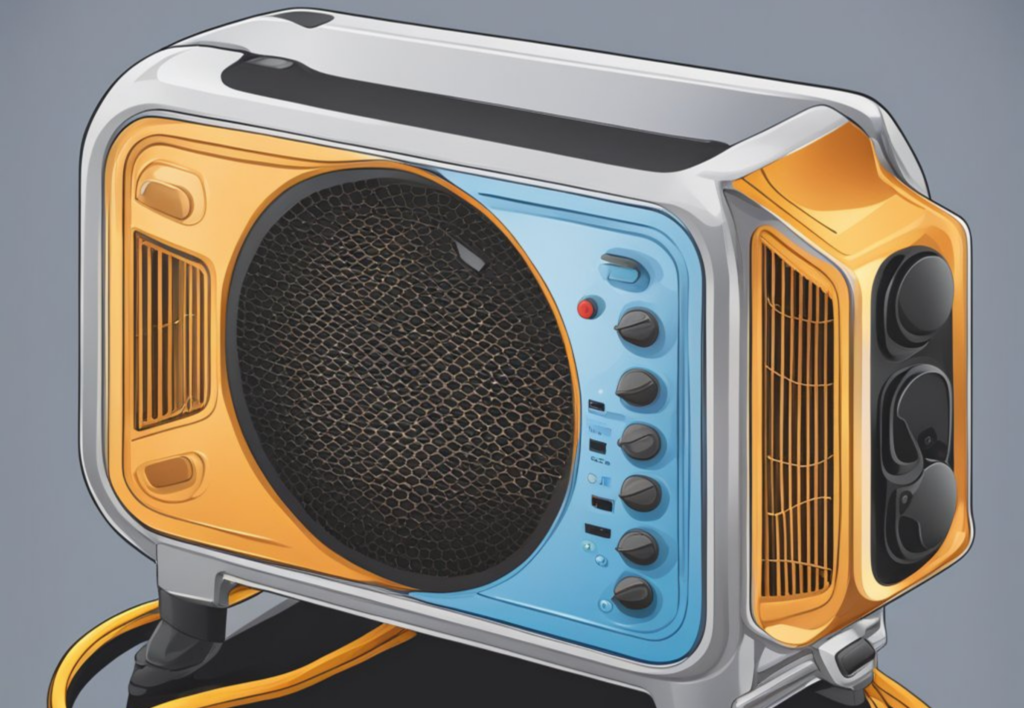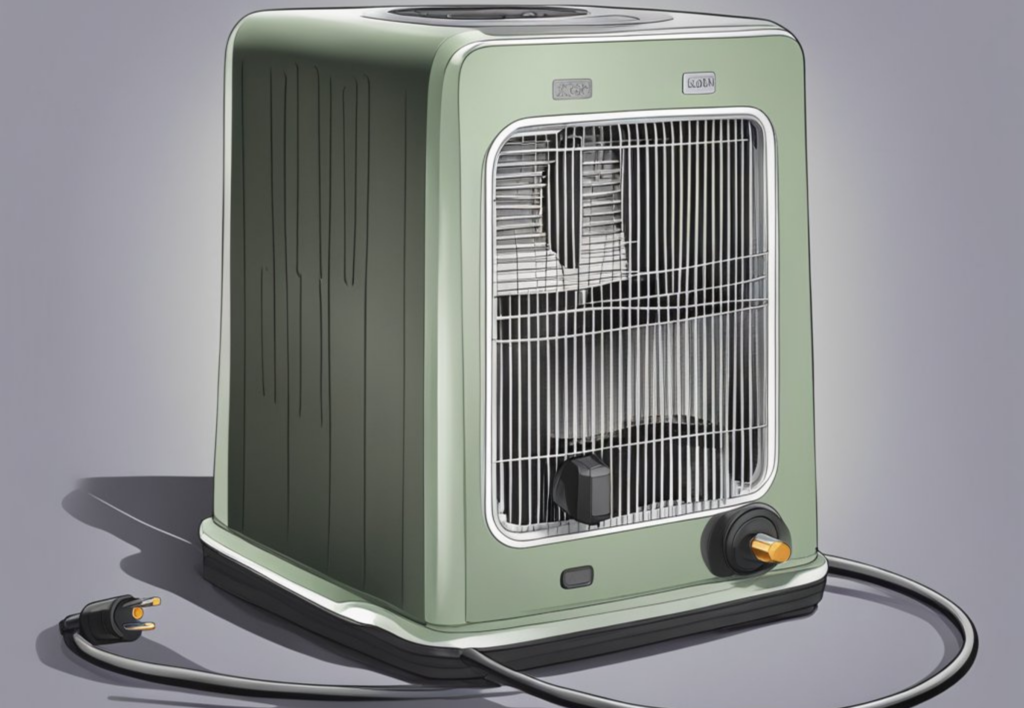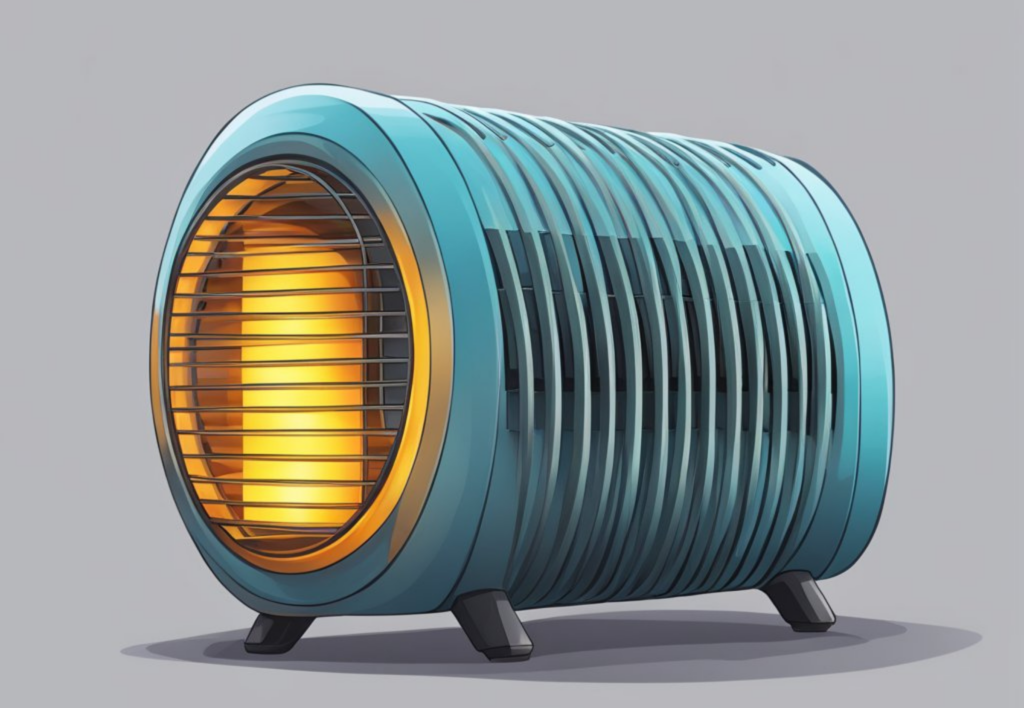Why Does My Space Heater Keep Turning Off? (10 Causes, Symptoms, & Fixes)
Space heaters provide a convenient way to warm up specific rooms or areas in our homes. However, like all appliances, they can sometimes experience issues.
One common problem many users encounter is the space heater turning off unexpectedly. While this can be frustrating, it’s often a result of built-in safety features or other identifiable causes.
A space heater usually keeps turning off on its own due to automatic safety features like overheating or a tilt or tip-over switch but it could also turn off automatically because of improper thermostat settings, a faulty power cord, internal component failure, circuit overload, the timer settings, remote control settings, or a problem with an external thermostat.
Below, we delve into the 10 most common reasons why space heaters might turn off and offer guidance on what signs to look for and how to address each issue.
10 Common Reasons Why Space Heaters Turn Off
Understanding the myriad reasons—from something as simple as blocked vents causing overheating to more complex issues like a tripped circuit breaker due to electrical overload—will aid in swift troubleshooting.
Here are the most common issues, what to look for, and how to fix them!
1. Overheating (Safety Feature)
Overheating is a built-in safety feature in most space heaters. It’s a common issue that arises when the heater gets too hot, usually due to obstructed airflow or extended use. Overheating can be a significant safety concern, as it can lead to potential fire hazards.
What to Look For:
- The heater turns off after prolonged use.
- The unit feels hotter than usual.
- Obstructed air vents or a dirty filter.
How to Fix It:
- Ensure the heater is placed on a hard, level surface away from flammable materials.
- Clean any obstructed air vents or intake grills.
- Replace or clean the filter, if applicable.
- Allow the heater to cool down for a few minutes before restarting.
2. Tilt or Tip-Over Switch
This feature is common in modern space heaters to prevent fires if the heater is accidentally knocked over. It’s crucial for safety, especially in homes with pets or children.
What to Look For:
- The space heater turns off when moved, tilted, or knocked over.
- The space heater doesn’t start even when upright.
How to Fix It:
- Ensure the space heater is on a stable, level surface.
- Check for any obstructions or debris at the base that might interfere with the tilt switch.
- Reset or restart the heater.

3. Thermostat Settings
The thermostat manages the heating cycles based on room temperature. If set too close to the current temperature, the heater may frequently cycle on and off. It’s a common and non-hazardous issue.
What to Look For:
- The heater cycles on and off in response to room temperature.
- The set temperature on the heater is close to the room’s current temperature.
How to Fix It:
- Adjust the thermostat to a higher setting if you want continuous warmth.
- Ensure the heater’s thermostat is not near another heat source, which could cause inaccurate readings.
4. Faulty Power Cord or Electrical Issues
Electrical problems can be less common but are serious. They can pose a risk of electrical shock or fire, especially if the power cord is damaged.
What to Look For:
- The power cord appears frayed or damaged.
- The heater doesn’t start in one outlet but works in another.
- Flickering lights or other signs of electrical issues when the heater is on.
How to Fix It:
- Inspect the power cord for damage. If damaged, replace it or consult a technician.
- Try a different electrical outlet to isolate the problem.
- Consider consulting an electrician if there are recurring electrical issues.

5. Internal Component Failure
While less common, internal components can fail due to wear and tear or manufacturing defects. Such issues can be more complicated and might require professional repair.
What to Look For:
- The heater frequently shuts off or doesn’t start despite trying multiple solutions.
- Unusual sounds or smells coming from the heater.
How to Fix It:
- Consult the user manual for troubleshooting tips specific to your model.
- Consider reaching out to the manufacturer or a technician for a professional diagnosis.
6. Circuit Overload
Space heaters can draw significant power, leading to overloaded circuits, especially when shared with other high-power devices. Overloaded circuits can be dangerous, posing a fire risk or damaging electrical systems.
What to Look For:
- Other devices on the same circuit shut off when the heater is on.
- The circuit breaker trips when the heater is in use.
How to Fix It:
- Unplug other high-wattage devices from the same circuit when using the heater.
- Consider using the heater on a dedicated circuit or a different one with fewer devices.
7. Timer Function
Some heaters come with built-in timers for automatic shutoff. It’s a feature designed for convenience and energy conservation but can be confusing if activated unintentionally.
What to Look For:
- The heater turns off after a consistent, set duration.
- A visible timer setting on the heater’s display or control panel.
How to Fix It:
- Adjust or turn off the timer setting, as per the user manual.
- Ensure you’re not accidentally setting a timer if you want continuous operation.

8. Remote Control or Digital Settings
Modern heaters may include digital controls or remote functionality, which, while convenient, can occasionally experience software glitches or need updates. Additionally, these digital settings can sometimes malfunction or become misconfigured.
What to Look For:
- The heater turns off unexpectedly or doesn’t respond to manual controls.
- The remote control isn’t functioning properly.
How to Fix It:
- Check the remote’s batteries and replace if necessary.
- Ensure there’s a clear line of sight between the remote and the heater’s sensor.
- Reset the heater or refer to the user manual for specific control issues.
9. External Thermostat (For Heaters Plugged into External Thermostats)
Heaters connected to external thermostats rely on the thermostat’s readings to regulate heat. Misconfigurations can lead to unexpected shutoffs.
What to Look For:
- The heater turns off even when the room hasn’t reached the desired temperature.
- The external thermostat settings don’t match the heater’s settings.
How to Fix It:
- Ensure the external thermostat is functioning correctly and set to the desired temperature.
- Position the thermostat away from drafts, windows, or other heat sources for accurate readings.
10. Dusty or Dirty Environment
Dust or debris can clog a heater’s internal components, affecting its performance and safety features. Regular cleaning can prevent this common issue.
What to Look For:
- Accumulated dust or debris inside or around the heater.
- Reduced airflow from the heater’s vents.
How to Fix It:
- Clean the heater’s exterior and any visible vents or grills.
- Refer to the user manual on how to safely clean the inside of the space heater or replace filters.
- Ensure the heater is stored in a clean and dust-free area.
Maintenance Tips To Prevent a Space Heater From Shutting Off Constantly
Regular maintenance of your space heater can not only enhance its lifespan but also ensure it operates safely and efficiently.
- Routine Cleaning: At least once a month, turn off and unplug your heater to clean external surfaces, vents, and grills to prevent dust buildup.
- Filter Replacement: If your heater has a filter, check it monthly and replace it as needed. A clean filter ensures efficient airflow and reduces overheating risks.
- Inspect Cords: Regularly check the power cord for any signs of wear, fraying, or damage. Early detection can prevent potential hazards.
- Storage: If you’re not using your space heater, especially during warmer months, store it in a dry place free from dust and debris. This can prevent unwanted issues when you next use it.
- User Manual: Always keep the user manual handy. It’s an invaluable resource for understanding the specific maintenance needs of your heater model.
By dedicating a small amount of time to maintaining your space heater, you can ensure it remains a safe and reliable source of warmth for years to come.
Check Out Our Complete Guide to Space Heaters!
If you enjoyed this post, check out our complete guide to space heaters for more information on space heater types, safety features, troubleshooting common issues, and how to choose the right space heater for your needs!
Let Us Know How We’re Doing!
Did this expertly prepared resource answer your question?
Do you have another question about home maintenance, home improvement projects, home appliance repair, or something else?
Get more information, send in questions and keep the discussion going by contacting the I’ll Just Fix It Myself company customer service team at at 1-800-928-1490 or Email us at [email protected]
